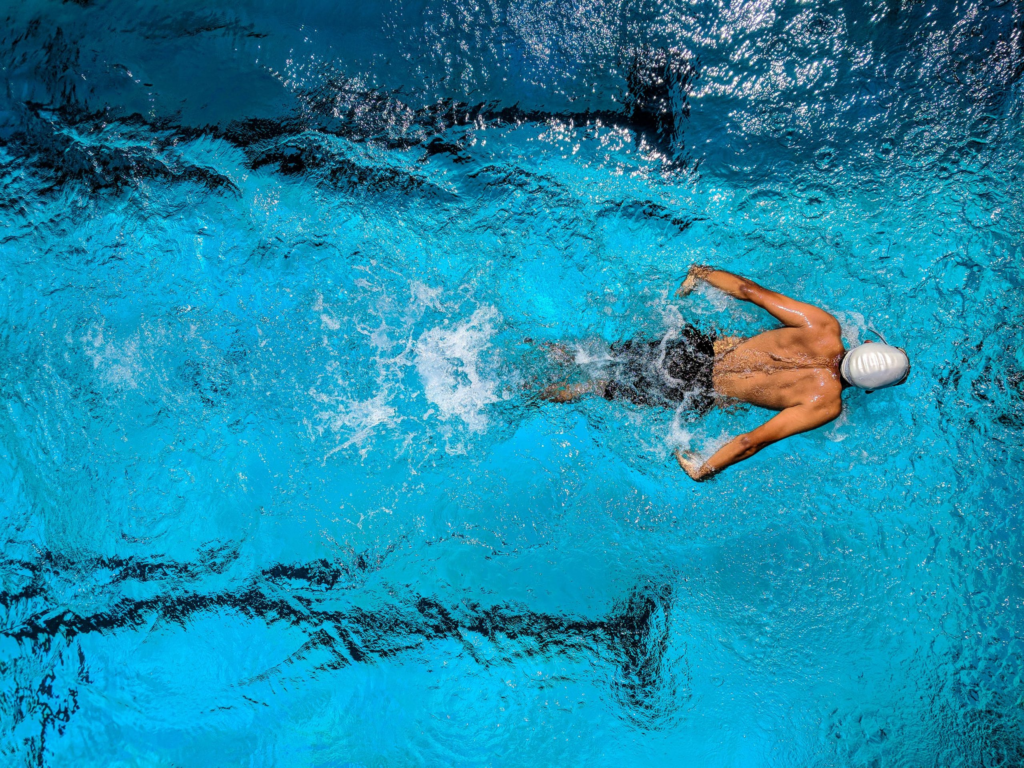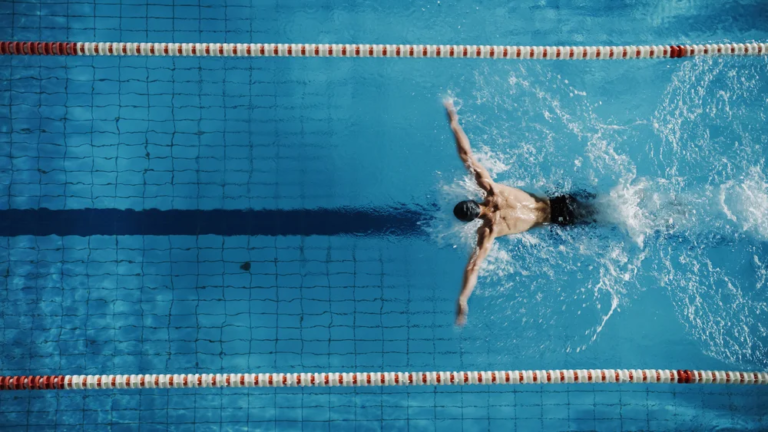Swimming is not just a sport; it’s a way of life. From the moment you step into the water, you leave all your worries behind and let the water embrace you. So, what does a swimmer’s daily routine look like? Let’s take a closer look at the life of someone who lives with water.
Energy Starts with the First Light of the Morning

For a swimmer, the day usually begins in the early hours of the morning. With the first light of dawn, swimmers head to the pool. Waking up early provides a quieter environment in the pool and helps them stay energetic throughout the day. Morning workouts boost metabolism and increase calorie burn throughout the day. Additionally, the coolness and tranquility of the water clear the mind, helping start the day on a positive note.
Warm-Up and Stretching

Before diving into the pool, warm-up and stretching exercises are crucial for swimming performance. Warm-ups prepare the muscles and joints for the workout, reducing the risk of injury. Swimmers typically warm up with light jogging, jumping jacks, or dynamic stretching exercises. This routine helps them focus mentally as well as physically on the workout.
Diving into the Water and Training

After the warm-up, it’s time for the most enjoyable part: diving into the water. Swimmers train in various swimming styles according to their training programs. Freestyle, backstroke, butterfly, and breaststroke exercises work different muscle groups and improve overall conditioning. During training, specific distances and times are targeted, helping swimmers enhance their endurance and speed.
Post-Training Cool Down

At the end of a workout, it’s important to gradually bring the body into rest mode. Cool-down exercises help normalize heart rate and reduce lactic acid buildup in the muscles. Slow swimming, light stretching, and deep breathing techniques are part of the cool-down process.
Nutrition and Hydration

A swimmer’s diet directly affects their performance. Adequate and balanced nutrition aids in muscle recovery and replenishes energy stores. After swimming workouts, meals rich in protein and carbohydrates are preferred. Chicken, fish, legumes, whole grains, and fresh vegetables are essential in a swimmer’s diet. Additionally, adequate water intake is crucial for training performance and overall health. Besides water, sports drinks can be chosen to maintain electrolyte balance.
Rest and Sleep

After intense training programs, the body needs rest. Quality sleep is essential for muscle recovery and energy restoration. Swimmers usually aim for 8 hours of sleep a night. Short rest breaks during the day also help replenish energy.
Mental Preparation and Motivation

Swimming is not just a physical activity; it requires mental endurance as well. Swimmers practice mental training techniques like meditation and breathing exercises. Setting goals and planning to achieve them keeps their motivation high and helps them continuously improve.
Social Life and Fun

Despite their intense training programs, swimmers make time for their social lives. Spending time with family and friends and dedicating time to hobbies help maintain mental health. Social activities also alleviate the physical and mental fatigue brought on by training.
Conclusion:
A swimmer’s life requires discipline, dedication, and passion. Living with water is not just a sport but a lifestyle. These routines help swimmers stay strong both physically and mentally. If you want to be part of the magical world of water, you can incorporate these routines into your life and fully enjoy the water. Remember, every stroke makes you a stronger and healthier individual. Stay with water, stay healthy!


